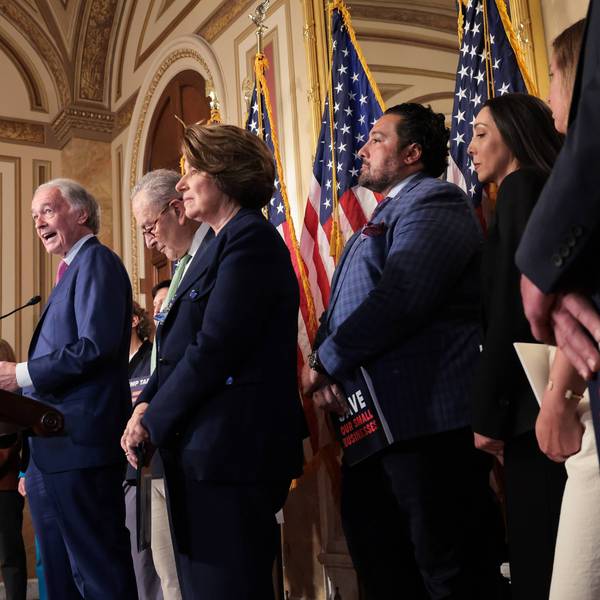As many people have heard by now, an online controversy erupted when the aptly-named Cracker Barrel restaurant chain added a "meatless sausage" option to its breakfast menu, a document whose otherwise unhealthy options have arguably mass-produced more arterial cholesterol than any other industrial gourmandizing operation on Earth.
Some people have argued that this story doesn't deserve all the attention it has received. I'm not so sure. In fact, I think it hints at a way forward for the American left. That may be slathering a lot of portent onto what is, after all, just a few thousand people arguing online about breakfast meat. But hear me out.
Cracker Barrel, for those who don't know, is a restaurant chain that specializes in reproducing an idealized aesthetic of the rural South, especially as it has been portrayed in films and television: peaceful, friendly, hillbilly-ish, and White. Each restaurant offers a "country store" and a "jes' folks" serving style. If you've ever seen the old TV show, "The Waltons," you know what I'm talking about.
(An aside: During that show's heyday I saw Ralph Waite, who played "Pa" Walton, surrounded by a largely elderly group of autograph seekers in an airport Dunkin' Donuts. He wasn't wearing overalls and had a glamorous young woman by his side, but by God it was Pa just the same. As the fans closed in he had a look in his eyes I'll never forget, like a trapped animal in a Gucci jacket.)
Cracker Barrel announced its new menu option in a Facebook post that read, "Discover new meat frontiers. Experience the out of this world flavor of Impossible(tm) Sausage Made From Plants next time you Build Your Own Breakfast." That triggered a series of outraged posts from right-wing customers, with media coverage that highlighted posts like "Cracker Barrel has gone WOKE!!!" and "This is not what Cracker Barrel was to be all about."
The right-wing commenters were soon swamped by liberals mocking their outrage. "It's not like you're being forced to have a baby," said one. "You know it's really bad when you can't even be pro-choice when it comes to food," said another. The right had its own rejoinders. "I'm just over here laughing at the fact that the meatless sausage is next to eggs," wrote one presumably conservative commenter (which is actually a pretty good point).
The most insightful liberal comment, however, wasn't a jibe. It was this one: "Everyone knows this isn't about sausage, right? It's about the fear that their comfortable, traditional world is being left behind. Give 'em a break, they are just scared."
The compassion is called for. Their world is, in fact, being left behind. Rural America, like most of working-class America, is in desperate straits. It has been decimated by opioid addiction and deaths, environmental devastation, and the permanent losses of good jobs. The so-called "deaths of despair" (from alcoholism, overdose, and suicide) have torn through White populations there, while rural communities of color have disproportionately suffered from pollution of the air and water. Their jobs have been outsourced, their communities have been depopulated, and big agriculture has destroyed the family farm. The liberals mocking them online are, in the aggregate, much wealthier than they are.
True, in many ways their world was never real in the first place. It was a myth constructed in Hollywood and on the campaign trail to keep them pacified. That's the world that Cracker Barrel represents. The intrusion of something "strange"--even something as benign and environmentally necessary as plant-based food--stands for something else: a world where life-altering decisions are made for them, not by them.
Hence the rage against "woke corporations." Some of the angry people may be racist. But this is an inchoate rage born of powerlessness, not of racism. If this was primarily about race, they wouldn't be calling Cracker Barrel "woke" for introducing plants into the breakfast menu. "Woke," to them, means "elite," "powerful," "wealthy," "we think we know better than you," and "we can force you to do things our way."
A lot of people whose lives have been ruined by corporations and elites don't even know what "wokism" is. They just know that if politicians and corporations are selling it, they don't want it.
That rage is why Republican like Sens. Josh Hawley, Marco Rubio, and Ted Cruz are blasting "woke corporations" and "woke elites" for what Hawley calls "a toxic blend of offshoring and woke politics, selling out American workers even as they attack American values."
The truth is, rural people should be scared of "woke corporations"--not because they're woke, but because they're corporations.
That's where the left comes in--or should. Instead of mocking the Cracker Barrel crowd, the left should be organizing them against the common threat faced by all working people: the concentrated power of corporations and political elites.
Instead, too many liberals and Democrats are relying on corporations to be the engines of their social agenda. As long as corporations dominate the economic landscape, corporate action will be useful. Impossible Foods, which makes the Impossible(tm) Burger and Impossible(tm) Sausage, is funded to the tune of $75 million from Bill Gates and venture capital. But we desperately need to reduce meat consumption to save the planet, which means that its product is useful and important.
But corporate activism can never be a substitute for political activism or raising collective awareness. Corporations will always place profits above all other considerations. To depend on them, in the end, is to serve their interests.
It's clear that the current strategy for reaching rural and other working-class people, dominated by the center-left, has failed. A recent New York Times/Siena College poll found that, as the Times' Nate Cohn put it, "For the first time in a Times/Siena national poll, Democrats' share of support from white college graduates was higher than for nonwhite voters--a remarkable sign of the shift in political energy in the Democratic coalition."
Nor is this shift a Whites-only phenomenon. "Inflation and the economy are dragging Democrats down among working-class voters--perhaps notably among Hispanic Americans."
With his seemingly unfailing capacity for error, James Carville proclaimed that "wokeness is a problem and we all know it." But the problem with "woke corporations" isn't the "woke" part. It's the corporate part.
Yes, there is a resistance to change in some cultural circles, not just among Evangelical Whites but among Catholic working-class Hispanics and many working-class Blacks. That may show up as discomfort with rhetoric around certain other minority groups. But, contra Carville, that's no reason to abandon those groups. In fact, it would be immoral to do so. The center-left must give way to the real left, which can reach these groups by explaining how corporation and elites truly exploit them. The cultural resistance to change--regarding LGBTQ issues, for example--will fade when people know that the real threats to their way of life are being addressed.
Across the political spectrum, people think this political system doesn't work for them--because it doesn't. Real progress can only be made when we stop thinking that any human beings are unreachable and that a better world for all of us is impossible(tm).




